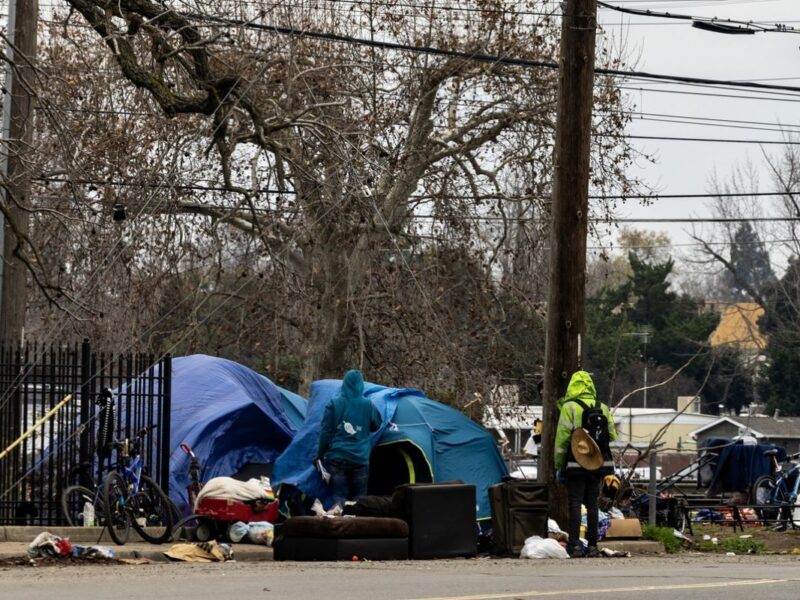A wrongful eviction accusation can make it difficult, if not impossible, to secure a safe, reliable place to live. The worst part about this dilemma is you might not even know your rental record has been marred with a false eviction claim.
If your rental applications are being rejected left and right, you might be vulnerable to homelessness by wrongful eviction, an accusation that can have harrowing consequences.
Eviction is A Pathway into Homelessness, Even for Folks Who Have Never Been Evicted
Many are aware that eviction is a pathway to homelessness. Having an eviction on one’s record can pose seven years of vulnerability, as landlords tend to look over prospects with a history of eviction.
In a screening conducted by researchers at the Urban Institute, more than half of surveyed landlords claimed they rejected at least 25% of their rental applications. Some landlords boasted denial rates as high as 75%! 90% of all landlords surveyed said they looked into a potential renter’s eviction history before making the final decision to rent or not rent out the property.
Unfortunately, due to application fees, storage rental fees, and other miscellaneous expenses like gas and time off to travel to and from various rental properties, racking up rental rejections can be an expensive, not to mention overwhelming, task. It happens right at the time when every penny counts, too.
Imagine shelling out $40 for every rejected application, knowing that money will not be returned. More often than not, a potential landlord will not divulge the reason they chose not to rent their unit out, but some of the most common reasons are as follows:
- Previous eviction
- Criminal record
- Low or insufficient credit score
- Lack of income
- Poor rental or job history and more
The National Low Income Housing Coalition Cites Inaccurate Eviction Information as a ‘Significant Barrier to Renting’
An eviction can follow a renter around for seven years or longer, posing a significant barrier to housing and opening the door to homelessness. Just ask elderly Ohio resident David Whipple, who was thrown out of an affordable senior living facility under allegations of smoking a cigarette.
Since the accusation and his subsequent removal from the property, Whipple, a disabled blind man, has been suffering in silence, living homeless on the streets of America’s Heartland. With no living relatives to turn to, his condition is bleak.
“I’m just in a bad situation,” Whipple told USA Today reporters. “I don’t know what to do.”
Not knowing is a huge part of the problem when it comes to eviction-related homelessness.
No laws on the books make it obligatory for a landlord to disclose their reason for rejecting a potential boarder. And, despite the seven-year window that’s supposed to be enforced regarding the visibility of evictions, 53% of inaccurate evictions should have been closed but remained on record for over seven years.
According to a non-random sample produced by the National Consumer Law Center, inaccurate eviction information might appear as one or more of the following:
- A sealed or expunged record still showing up in the landlord screening
- An eviction winding up on a tenant’s record after they fought the landlord in court and prevailed over them in trial
- A mischaracterization of an eviction or alleged eviction
- An eviction being accidentally attributed to the wrong tenant
- An eviction record that is more than seven years old still appearing during the screening process
The Tenant Will Just Keep Paying the Price for their Landlord’s Wrongful Eviction
Whether a wrongful eviction accusation accidentally shows up on a renter’s record or due to malicious intent, somebody will undoubtedly pay the price. That somebody is going to be the tenant, not the landlord.
The tenant will pay when the rejected application fee is due. The tenant will pay when they run out of affordable housing options. The tenant will pay when they’re forced into an apartment they can’t afford in an undesirable section of the city far away from their job, family, friends, and children’s school. The tenant will pay every time it’s time to search for a new place.
The wrongful eviction accusation will hover when a pregnancy occurs, and they need to get a bigger apartment. Or when a lease is up and it doesn’t get renewed. Or when the only landlord who was willing to take a chance on them decides to sell the property and kick them out on a moment’s notice.
And in the most unfortunate of cases, the tenant will pay by enduring homelessness, a condition known to shave about three decades off of the average person’s life expectancy.
Current Laws Favor Landlords at the Expense of Tenant Rights
One of the key reasons these wrongful evictions serve as a pathway into homelessness is that the current laws lean heavily in favor of landlords over tenants.
Over 90% of landlords have legal representation when an eviction is underway, compared to just 1% or 2% of all tenants. In the rare instance where a tenant prevails over a landlord in an eviction proceeding, that pending eviction can still appear on their record. It is expensive to leave it there and perhaps even more expensive to have it expunged.
Furthermore, if a wrongful eviction is sealed or expunged, it might still show up during the screening process.
To add insult to injury, a landlord doesn’t even have to file an inaccurate eviction to create a vicious cycle of rejected applications and homelessness. They can slander the tenant when the new prospective landlord contacts them to ask about the renter’s history. There is absolutely no legal safety net to protect people from such slander, an important point to consider, as this land of white picket fences is slowly being transformed into a nation full of renters.
Talk To Your Legislators About Drafting Laws that Protect Renters
Evictions, wrongful or not, can cause years of homelessness and unnecessary hardship. Our current legislation is designed solely to protect and defend the landlord, making it easy to take advantage of potential tenants along the way.
Caught in the grip of soaring rental rates, the median wage struggles to keep pace. Wall Street magnates fiercely vie for every remaining dollar in the rental market. With evictions surging nationwide, surpassing pre-pandemic levels in major cities, the urgency to address this crisis has never been more evident. Take a stand – reach out to your legislators today and demand enhanced renter rights nationwide. Your voice can make a difference in reshaping the future of housing security for all.













